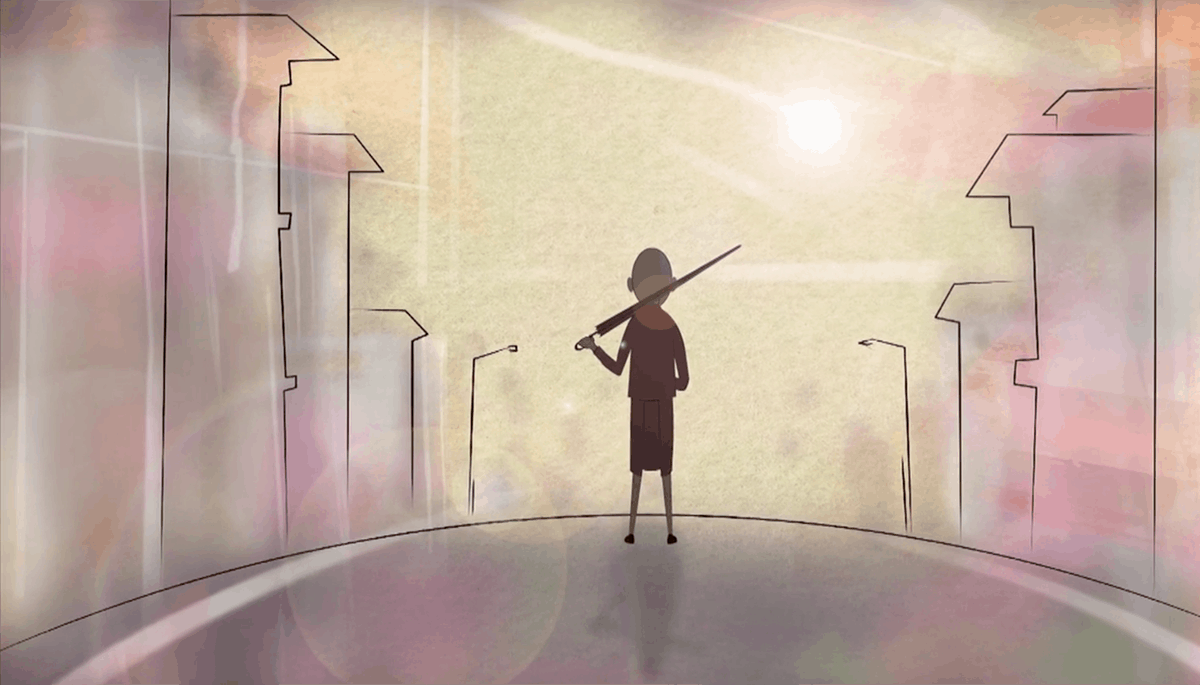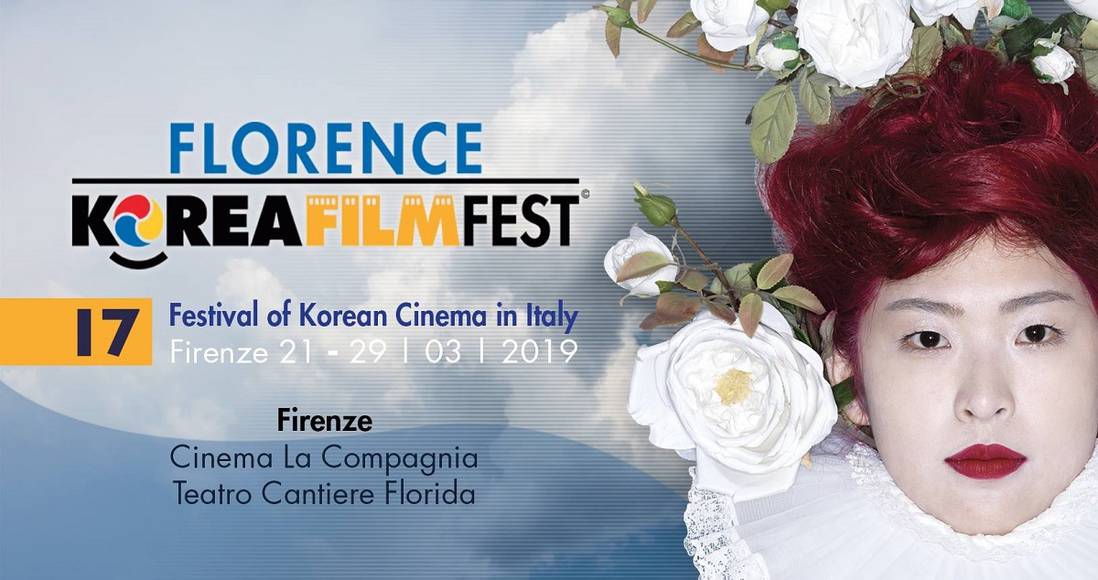An Electric Selection of Early, Shot on Film Shorts & Features From Some of Japan's Most Daring Directors
Metrograph presents Hachimiri Madness: Japanese Indies from the Punk Years, an electric showcase of restored early works from some of Japan's boldest filmmakers, beginning December 2, 2022 at Metrograph in Theater.
At the same time that the Japanese studios were going into tailspin decline at the end of the 1970s, a rude burst of amateur cinematic anarchy was erupting from the underground. This new jishu eiga, or “autonomous film,” was a cinema by and for outsiders, many of them shooting run-and-gun-style in the streets on cheap 8mm film (hachimiri in Japanese). The jishu film movement, which found a home after 1977 at the Pia Film Festival in Tokyo, was the cinematic analog of the experiments in extreme independent music happening in Japan at the same time, and would act as the incubator for a generation of renegade talents like Sogo Ishii, Sion Sono, and Masashi Yamamoto. A barrage of youthful energy, anti-authoritarian rage, and go-for-broke moviemaking, Hachimiri Madness sifts through the blast zone rubble of this creative explosion to present some of the most pungent examples of jishu filmmaking, accompanying Metrograph's runs of Yamamoto's What's Up Connection and Robinson's Garden, and Suwa's 2/Duo. Protective goggles strongly advised.
Series materials restored from the 8mm print original positive to 2K digital, with newly translated English subtitles by Pia Film Festival in collaboration with the Forum of the Berlin International Film Festival and the Hong Kong International Film Festival at the Tokyo Laboratory Ltd.
Titles include The Adventure of Denchu-kozo, Happiness Avenue, Hanasareru Gang, High-School-Terror, I Am Sion Sono, Isolation of 1/8800000, A Man's Flower Road, The Rain Women, Saint Terrorism, Tokyo Cabbageman K and UNK.
The series will run until Sunday, December 11.
THE ADVENTURE OF DENCHU-KOZO
dir. Shinya Tsukamoto, 1988, 45 min, DCP
Finished two years before his cyberpunk opus Tetsuo: The Iron Man, Tsukamoto's The Adventure of Denchu-kozo is a clear precursor to that later film in its assaultive editing and film speed manipulation, a far-out story about a bullied high schooler with an electric rod growing out of his back which goes on to introduce a homemade time machine, a plot by the “Shinshengumi Vampire Gang” to sink the world into eternal darkness, and a plentitude of perversion. Winner of the Grand Prize at the PIA Film Festival, this berserk sci-fi comedy brought fresh attention to Tsukamoto, who'd been making Super 8 films when he was a teenager but had almost given up his filmmaking ambitions in order to work in live theater when he adapted one of his stage plays into Denchu-kozu, and took Japanese cinema by storm.
ISOLATION OF 1/880000
dir. Gakuryu Ishii, 1977, 43 min, DCP
Ishii, who would direct that ne plus ultra of Japanese punk cinema, Burst City, a few years after Isolation of 1/880000, was already an instinctive, iconoclastic stylist in his 8mm days, as is abundantly evident in this mournful character study of a disabled young man, Takemitsu, whose pent up anger rises towards boiling point as he's submitted to the endless exams required for admission to a prestigious Japanese university. A delicate, ruminative treatment of “examination hell,” which would receive a more antic treatment in Ishii's feature debut, Panic High School.
HAPPINESS AVENUE
dir. Katsuyuki Hirano, 1986, 93 min, DCP
Part documentary, part performance art, and part riot, Hirano's Happiness Avenue opens with footage of a group of right-wingers as they demand the return of the Kuril Islands to Japan, then dives into gleeful anarchy that's in stark contrast to the humorless discipline of the nationalist groups, following a cast of unloosed rowdies – Sion Sono among them – as they run amok in Shizuoka, letting loose with a blitzkrieg of puerile pranks and general bad behavior that ends in the town's sewage system. A cackling “fuck you” from Hirano, who would later turn his talents to documentaries about bicycle tours and avant-garde pornography.
HANASARERU GANG
dir. Nobuhiro Suwa, 1984, 85 min, DCP
An overt homage to the French Nouvelle Vague, whose anything goes approach was an important reference point for many hachimiri filmmakers, Suwa's debut feature is an occasionally a-chronological genre pastiche involving a band of petty crooks, the girl who joins in on their misadventures, and a suitcase full of cash in a stolen car. Self-aware voiceover from the characters periodically butts in to comment on the action, which swivels between slapstick and serious drama, or to churlishly “spoil” the film's ending when it has barely just begun. An experimental grab-bag from Suwa, who would continue his dialogue with the Nouvelle Vague in his best-known film, 2001's H Story, a sort of remake/deconstruction of Alan Resnais's Hiroshima Mon Amour.
A MAN'S FLOWER ROAD
dir. Sion Sono, 1986, 111 min, DCP
Sono's broke-backed, brazen first feature, made when its director was only 24, opens with a hysterical chase scene that concludes with Sono (also starring), clad only in a red raincoat, discovering a band of Kappa – water creatures described in Japanese folklore – living in Tokyo's canals… before leaping unexpectedly into an autobiographical register with a shomin-geki-like story of stifling domestic existence, in which the director's family members play themselves. Audacious and obnoxious, it ends with Sono writing something like the film's moral on a Tokyo tramline: “Life sucks.”
THE RAIN WOMAN
dir. Shinobu Yaguchi, 1990, 72 min, DCP
Before making a name for himself as the director of eccentric hit comedies like Swing Girls and Waterboys, Yaguchi produced this playful, ingenious shapeshifter of a film, which begins by following the fanciful, impulsive misadventures of two Rivettian young female roommates – including musical sequences! – before taking a sharp turn that leads to meta-cinematic inquiries into the nature of cinematic fiction and sumptuously gloomy atmospherics. Capricious, singular, and entirely delightful.
HIGH-SCHOOL-TERROR
dir. Macoto Tezka, 1979, 6 min, DCP
Brilliantly and somewhat perversely, Tezuka uses 8mm, a format associated with low-budget amateurism, to create a paean to cinematic special effects, usually considered the domain of big studio productions. The son of Osamu Tezuka, a celebrated animator and manga artist, the younger Tezuka illustrates his beguiling story of a young woman's strange and enchanted urban outing with an exhaustive knowledge of film history and an opulent visual imagination.
UNK
dir. Macoto Tezka, 1979, 15 min, DCP
Following up on the success of his 8mm film Fantastic Party, produced when he was still in high school, Tezuka made a splash at the Pia Film Festival with two audacious shorts: UNK and High-School-Terror, in which he elevates a simple ghost story premise – two girls are menaced by spirits in an empty school building – into something unforgettable via experimental editing and a talent for conjuring up spine-chilling images with the most modest of means. Six years before his feature debut with musical comedy The Legend of the Stardust Brothers, High School-Terror shows Tezuka's abundant visual imagination already in overdrive.
SAINT TERRORISM
dir. Masashi Yamamoto, 1980, 127 min, DCP
An angel-faced thrill-kill murderess provides the link between the various interwoven stories that make up Saint Terrorism, Yamamoto's fantastic, downright apocalyptic vision of loners and criminal outsiders in Tokyo's Shinjuku neighborhood, living at odds with Japanese society as it races towards globalization and the money-mad '80s. A defiant snarl of a film from Yamamoto, whose Carnival in the Night would become a phenomenon at the Berlin International Film Festival in 1983.
I AM SION SONO!!
dir. Sion Sono, 1984, 37 min, DCP
Long before his genre-bending films became favorites at international film festivals, Sono was a whirlwind force in the arts, an enfant terrible who tackled poetry and experimental theater before moving on to cinema. Attacking the new medium with gusto, Sono produced this ebullient, provocative, and highly personal short which explores the potential role of film as a part of his larger body of work, and displays the same rambunctious, reckless energy that distinguishes his later features. Screens with Agata's debut Tokyo Cabbageman K, a feral adaptation of Kafka's Metamorphosis, about a young man who wakes up to find that he has turned into a cabbage.
TOKYO CABBAGEMAN K
dir. Akira Ogata, 1980, 59 min, DCP















